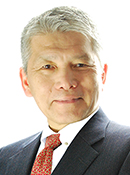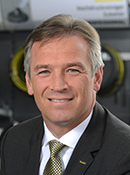PROGRAM
Subjects to be discussed
How a building is used determines the purposes, methods, and procedures of building maintenance services, as the needs of the users of our clients' businesses vary, depending on the use of the building. For this reason, the panel discussions are divided into sections according to building utilization and facilitated by management consultants representing the industries of our clients.
We will be addressing the issues and challenges faced by our clients' industries based on building use, discussing the needs of our clients, and talking about how we can best approach our clients' users/consumers.
Time table
| Hall E(Exhibition Hall)(free entrance) | |||||
|---|---|---|---|---|---|
| Date | Time | Hall B7 | Hall B5 |
Trade Show | Events |
| April 4 (Mon) |
13:00~13:45 | Opening Ceremony | (10:30~12:00) Tokyo Association Seminar(☆★) |
(10:00~17:00) Trade Show |
(15:00~16:30) Cleaning Demonstrations |
| 14:00~15:00 | Keynote Speech 1 | ||||
| 15:00~16:00 | Keynote Speech 2 | ||||
| 19:00~21:00 | Welcome Reception | ||||
| April 5 (Tue) |
9:30~10:50 | Sponsor's Session | (10:00~11:00) (13:00~15:00) |
(10:00~17:00) Trade Show |
(10:00~11:30) (12:00~12:30) (13:30~14:00) (15:30~16:30) |
| 11:00~12:00 | Cultural Session 1 | ||||
| 12:00~13:30 | Lunch | ||||
| 13:30~14:20 | Cultural Session 2 | ||||
| 14:30~15:50 | Business Session 1 | ||||
| 16:00~17:00 | Business Session 2 | ||||
| 17:00~19:00 | Bus Departure | ||||
| 19:00~21:00 | Reception(Dinner Cruise) | ||||
| April 6 (Wed) |
9:30~10:50 | Sponsor's Session | |||
| 11:00~12:00 | Special Speech | ||||
| 12:00~13:00 | Lunch | ||||
| 13:00~14:20 | Building Service Seminar2 (☆) |
||||
| 14:30~16:00 | Springboard Session | ||||
| 16:00~17:30 | Bus Departure | ||||
| 17:30~18:00 | Induction for the next President (Hotel Chinzanso Tokyo) |
||||
| 18:00~18:30 | German Night (Hotel Chinzanso Tokyo) |
||||
| 19:00~21:00 | Gala Dinner (Hotel Chinzanso Tokyo) |
||||
| April 7 (Thu) |
Excursion (Optional) | ||||
☆…No addmission charge session.
★…There is no interpretation provided and only Japanese language is available.
Speakers
April 4, Mon Keynote Speech
「Sustainable Urbanization and Health:
The critical role of urban design, infrastructure and building services」
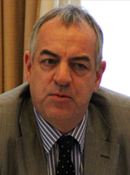
Dr. Graham Alabaster
Senior Technical Adviser, WHO
Former Chief of Section, Urban Basic Services, UN-Habitat

Sustainable Urbanization and Health: The critical role of urban design, infrastructure and building services.
The world is currently facing unprecedented demographic and social changes that will mean increased competition for scarce resources. Urbanization will exert extreme pressure on countries to plan their expanding cities more effectively and to improve efficiency and resource use. Good urban planning and design, its buildings, infrastructure and services will greatly influence the patterns of urbanization, promoting healthy and environmentally sustainable cities with reduced carbon footprints.
Different countries will have different needs. In developed economies, the focus will be more on tackling non-communicable diseases (NCDs) focussing on lifestyle diseases and those related to poor air quality etc., whereas in less developed regions, in addition to NCDs, communicable diseases will continue to exert a heavy toll, especially in unplanned settlements where services are woefully inadequate. The domestic and peri-domestic environment have a significant impact on health and well-being and without efficient and effective services there are increased risks. Sustainable urbanization is therefore critical to ensure all citizens have healthy and productive lives.
The changing role of public health will become increasingly more reliant on environmental management to reduce risks from disease. This responsibility will go beyond the medical sector to include local authorities and communities, and those involved in the management of urban space, be it offices, institutions or homes and their local environments.
The presentation will give some historical perspectives on urban design and how health issues were first tackled. It will then present some of the critical issues for the future and how we might engage with professionals working in disciplines related to the build environment, to improve the health in cities and urban areas. It will also mention of the opportunity for the forthcoming Global Conference on Housing and Urban Development HABITAT III, later this year.
Dr. Graham Alabaster is a public health engineer from UN-Habitat, who has a special interest in urban systems and is experienced in provision of services to low income urban populations. He is currently on loan to WHOs Department for Public Health and Environment from UNHABITAT, where he is developing joint programmes on urban development, health and environment. He is the co-chair of the UN-Water taskforce on wastewater and water quality. At UNHABITAT he was Section Chief responsible for Africa and Latin America in Human Settlements Financing Division of UNHABITAT. He is an Engineer by profession, with first degree in Chemical Engineering and a PhD in Civil Engineering. Starting his professional life as a Research Fellow, he travelled extensively in Africa, Asia and Latin America, providing technical assistance on sustainable wastewater management and sanitation, thereafter as an International consultant. He joined UNHABITAT in 1992 and has played a key role in building the Water, Sanitation and Infrastructure Branch. He is a Charted Engineer and Fellow of the Royal Society of Health. He represents UNHABITAT on many inter-agency bodies. He was the agency representative on the WHO Panel of Experts for the Environmental Control of Vector-borne Diseases (PEEM), with a special interest in urban vector-borne diseases. He has over 35 years experience in the water
sanitation and solid waste management sector, working in over 50 countries. In addition to designing and implementing projects in Africa and Latin America, he has global responsibility for policy issues relating to sanitation, pro-poor water and sanitation governance, solid and hazardous waste management, and monitoring water and sanitation MDGs.
April 4, Mon Keynote Speech②
「Opportunity lies in the middle of difficult business situations」
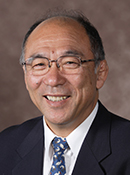
Speaker:Masao Kosuge(Former Director,The Asahiyama Zoo-)
Dates:15:00~16:00 April 4th 2016
Location:Tokyo International Forum hall B-7
What does Leadership mean to you? Is it linked to your seniority or your skill?
The quality of a leader is not reflected in the standards they set for themselves.
Leadership is the art of getting someone else to do something you want done because he wants to do it. And a sense of humor is part of the art of leadership, of getting along with people, of getting things done.
Facing a crisis in your organization is a key factor to make up member’s minds. Opportunity lies in the middle of difficult business situations.
Sponsor Session
「The Internet of Clean」
Speaker:Dr. Ilham Kadri, President, Diversey Care &
Juichiro (Jay) Yamaguchi,Representative Director &
President, CxS Corporation.
Technology and innovation can help to advance health and hygiene challenges into the 21st century. We are witnessing a revolution in the cleaning industry and the Internet of Clean platform and technology that is currently developing rapidly is the best way to enhance food safety, operational efficiency and sustainability in our industry.
April 5, Tue Cultural Session①
「The heart and soul of managers」
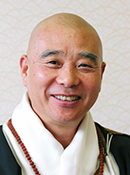
Speaker : Hoin Yamada(The Head Priest, Yakushiji temple)
Dates:11:00~12:00 April 5th 2016
Location:Tokyo International Forum hall B-7
Managers are lonely.
Needless to say the managers have to make the final decision for their business and are not able to depend on somebody else.
And they have to take on the risk of workers including their families in their companies by making decision.
Although religious denomination may be different, managers can depend on religion in their heart and soul.
April 5, Tue Cultural Session②
「The building maintenance in the Edo Period」
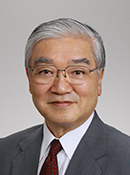
Speaker:Tokugawa Tsunenari(President, Tokugawa Memorial Foundation
18th Head of the Tokugawa Shogunal Household)
Dates:13:30~14:20 April 5th 2016
Location:Tokyo International Forum hall B-7
After a long period of warfare which occurred in the Edo Period there was construction of huge castles large temples and beautiful shines.
Due to a development of infrastructure such as road maintenance, product transportation networks and farmland, Edo became the biggest city in japan after a population explosion.
The spirit of treating things carefully affects today's Japanese culture. I would like to talk about Edo culture that is based on the mind of Japanese people and compare it to European culture.
Business Session①
「The potential of building maintenance
- from Japanese LCA to state of the art technology like robots」
| Yukihito Tanaka | Ministry of Economy, Trade and Industry |
| Hiroyasu Kitagawa | Mitsui Sumitomo Insurance Co., Ltd. |
| Satoshi Suzuoki | Executive Direcotor,Japan Institute of Plant Maintenance |
| Yasuhiro Hagiwara | SAM corporation CEO |
| Kenji Abe | Japan Industrial Safety and Health Association |
| Nobutaka Komatsu | Certified International Investment Analyst (CIIA) |




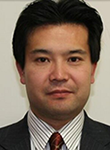


からくり茶運人形
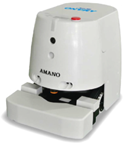
お掃除ロボット
Dates:14:30~15:50 April 5th 2016
Location:Tokyo International Forum hall B-7
In Japanese industries there is a culture of improvement, so it affects various attempts in the manufacturing scene. An example of this is LCA (low cost automation).
By thinking outside the box, staff made technical equipment for a particular purpose using principles as a lever and a pulley. It enabled both productivity improvement and workload reduction to support manufacturing in Japan.
In Japan, said to be a robot power house, there is the practical use of robots and robot technology in the field of not only manufacturing but also nursing, agriculture and public infrastructure
In this session, there will be a panel discussion of attempts needed in building maintenance to show you examples of different types of business using Japanese LCA and robot technology.
"Robot" Special Demonstration for Building Services
April 5, Tue Business Session②
「The power of skillful cleaning staff
-the reason why they attract the admiration of people around the world」
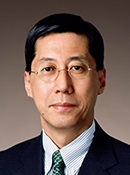
Speaker:Isao Endo(Chairman, Roland Berger Strategy Consultants)
Dates:16:00~17:00 April 5th 2016
Location:Tokyo International Forum hall B-7
TESSEI is the cleaning company working for JR-EAST.
Their attitude to finish tasks in 7 minutes and their politeness is garnering attention around the world.
Foreign travelers exclaim what a beautiful place Tokyo station is. And The President of the National Railways in France said that he would like to transport this service in my country.
Even though TESSEI is a normal cleaning company, why do they have a reputation as a great team? Although cleaning sites are said to be a dirty, dangerous and demeaning workplace. I will show you what makes the workplace full of motivation and their results the best in the world. I would like to show the secret of Japan to the world.
Sponsor Session
Theme:「Technology Trends
– How Connected Cleaning can change the BSC industry」
Presenter:Mr. Markus Asch(Alfred Kärcher GmbH & Co.KG)
Markus Asch, Deputy CEO of the Alfred Kärcher GmbH & Co. KG, President of the European Cleaning Machines Association (EUnited) and President of the German Engineering Association Cleaning Systems (VDMA). In his presentation about Connected Cleaning Markus Asch will focus on the enormous possibilities the increase in digitalization holds for the cleaning industry and how to utilise this potential.
April 6, Wed Special Lecture
「Work cheerfully~branding in the healthcare industry~」
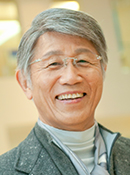
Speaker:Daisuke Tanida(Former President and representative director,
TANITA CORPORATION)
Dates:11:00~12:00 April 6th 2016
Location:Tokyo International Forum hall B-7
Even though I took over a company in deficit, I could grow it into the world's largest company. In this session I would like to share ideas about business expansion and development of new business and show examples such as selection and concentration of three businesses, how to turn deficit into profit, how to be best in your field, building overseas factories construction, exploration of overseas sales channels and branding obtained.
Business Session③
「It’s time for energy saving and environmental Performance」
-Collaboration with building owners to meet energy saving standards
Title:New energy saving standards and attempts of building owners
Speaker:Hitoshi Seimiya(Director/Senior Researcher, SHOHEI Institute of Real Estate Inc.)Title;Partners in energy saving improvement
Speaker:Makoto Kaneko(The board of director Equipment Maintenance committee, Japan Building Maintenance Association)We have to make up our minds to achieve our goals to cut CO2 emissions by 26 % by 2030. Especially, we are facing a crucial moment about energy saving of commercial buildings. As energy saving measures and environmental consideration have become mainstream, Clean Lease has become popular between building owners and tenant owners while Eco-Tuning is now common between building owners and tenant owners. In collaboration with stakeholders, we want to talk about how to spread improvements in saving energy.
Panel discussion
「Building maintenance as life cultural industry」
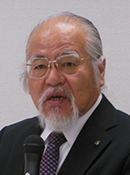
Coordinator:Takeshi Kubo
Director, RESEARCH INSTITUTE OF ENVIRONMENTAL MANAGEMENT, ADMINISTRATION AND MAINTENANCE OF JAPAN
(Japan Building Maintenance Association Director)
Panelists:
Junnosuke Ito(CEO, Morioka Total Building Maintenance Corp)
Genichi Mituhasi(Senior Managing Director, Mituhashi Shokai Co. Ltd)
Chikaaki Kido(Senior Managing Director, SanAiBisoCenterCo., Ltd)
Dates:14:30~16:00 April 6th 2016
Location:Tokyo International Forum hall B-7
The year 2016 marks the 50th anniversary of JBMA, and the 50th anniversary of the field of building maintenance. I appreciate forming my predecessors for companies, now the second and third generations have leading roles in this field.
While there are 26000 companies that are over 100 years old in Japan they have standardized a business model.
Developing building maintenance as life cultural industry for the next 50 years to 100 years is essential for improvement of both Japanese and world building service and lifelong duration of structures. In this session, the young managers who will take over their companies will talk about their initial enthusiasm to aim to become 100 year old companies.
Although ways to change are unclear due to the progress of robot automation and information communication technology, manpower and energy saving is prevailing.
In this session I would like young managers to talk a lot about existing problems and visions related to building maintenance for the next 20 years, next 50 years, and next 100 years.
In addition to this, I wish to organize a discussion between speakers and the audience, and I would like to share the way to establish building maintenance as a life cultural industry.





